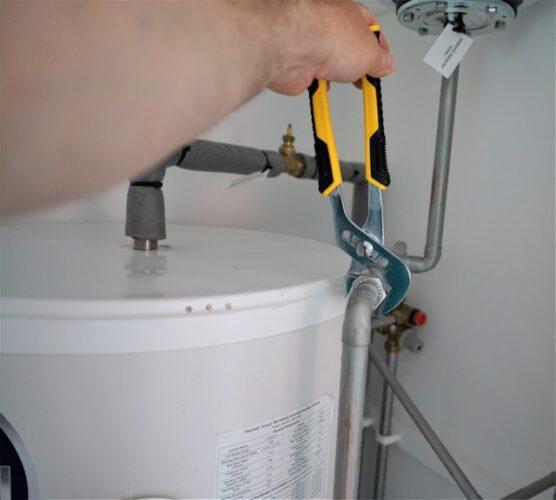Business
An Essential Guide To Fixing Your Broken Water Heater

Having to deal with a damaged water heater can be inconvenient, particularly if it interferes with your everyday schedule. Whether your water heater is giving you only warm water, making odd noises, or not producing any heat at all, knowing how to diagnose and resolve these common problems will help you get your house comfortable again. Here are a few vital pointers to assist you in efficiently handling issues with your water heater.
Table of Contents
1. Check The Pilot Light
When it comes to gas water heaters, a burned-out pilot light is frequently to blame for the lack of hot water. To safely relight it, start by finding the pilot light assembly and consulting the manufacturer’s instructions. When relighting, make sure the gas supply is turned on and observe all safety precautions. A thermocouple that isn’t working properly could be the cause of a pilot light that ignites but goes out. As a safety measure, the thermocouple detects whether the pilot light is on and permits gas to reach the burner. To get back to normal operation, the thermocouple might need to be replaced if it’s not working properly. Furthermore, look for any indications of gas leaks or obstructions in the gas line that supplies the pilot light.
2. Inspect The Heating Elements
Heating elements that aren’t working well in electric water heaters are frequently the cause of inadequate hot water. In order to ensure safety during the inspection and repair process, start by shutting off the water heater’s power supply. To check if the heating components are still operating, use a multimeter. In the event that the multi-meter registers an open circuit or zero continuity, the heating element can be faulty and needs to be replaced. To guarantee that the heating components are replaced correctly, consult the manufacturer’s instructions for the model of water heater you own. After replacement, turn the water heater back on and keep an eye on its operation to make sure it’s providing enough hot water.
3. Flush The Tank
It’s crucial to frequently empty and clean the tank to remove silt buildup, which can impair the efficiency of your water heater. For electric heaters, start by cutting the power supply; for gas heaters, start by cutting the gas supply. Next, find the drain valve close to the tank’s bottom and connect a garden hose to it. Place the hose’s other end outside where water can safely drain or next to a floor drain. Let the tank empty entirely by opening the drain valve. After the tank is empty, shut off the drain valve and fill it again. Until the water runs clean, showing that the silt and debris have been flushed out, keep emptying and refilling the tank. Finally, restore the power or gas supply to the water heater and monitor its performance. This routine maintenance task helps improve efficiency and prolongs the lifespan of your water heater, ensuring a consistent hot water supply.
4. Check The Pressure Relief Valve
A vital safety feature in your water heater is the pressure relief valve, which lets out extra pressure to stop tanks from rupturing. Lift the lever and let water flow out to test the valve on a regular basis to make sure it’s working properly. During testing, if the valve leaks, drips, or stops working, there may be a problem that needs to be fixed right away. In these situations, swap out the pressure relief valve for a brand-new unit that is suitable with your water heater. Timely replacement of the pressure release valve reduces the possibility of mishaps caused by over-pressurization and keeps your water heating system operating at peak efficiency.
5. Consider Professional Assistance
It’s advisable to seek the assistance of a licensed plumbing heating and cooling specialist when dealing with water heater problems that are outside your area of knowledge. These experts are equipped with the skills, training, and specific tools required to safely and effectively diagnose and fix complicated water heater issues. Hiring a professional may help ensure that repairs, maintenance, and troubleshooting of problematic components are done correctly, limiting the danger of further damage and guaranteeing optimal performance and safety of your water heating system. You may feel confident that your hot water demands will be met quickly and efficiently by leaving your water heater problems to experts.
Conclusion
A malfunctioning water heater may disrupt your daily routine, but common problems can be successfully resolved with the correct information and resources. By following these crucial instructions and getting expert help when required, you can confidently diagnose and resolve your water heater issues and guarantee a continuous supply of hot water in your house.

-

 Business3 years ago
Business3 years agoHow to Do Long-Distance Moves with Children
-

 Travel2 years ago
Travel2 years agoQuick Guide: Moving To Santa Rosa?
-

 Real Estate3 years ago
Real Estate3 years agoWhy Dubai Festival City is a Great Neighbourhood for Young Learners
-

 Business3 years ago
Business3 years agoIs Guest Posting a Good Inbound Marketing Strategy?
-

 Business1 year ago
Business1 year agoThe Ultimate Guide To Thriving In Your Printing Franchise
-

 Business1 year ago
Business1 year agoExploring The Benefits And Challenges Of Restaurant Franchising
-

 Tech3 years ago
Tech3 years agoCyber Table That Will Change Your Life
-

 Lifestyle1 year ago
Lifestyle1 year agoDallas’ Hidden Gems: 6 Must-Try Restaurants Off The Beaten Path!









Recent Comments